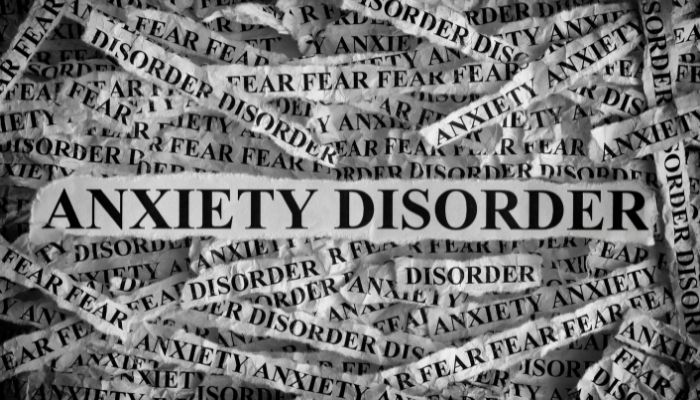Anxiety is a form of reaction that occurs when your brain recognizes stress about an upcoming or ongoing event. It manifests in the form of apprehension about the consequences of what’s going to happen. You feel sudden panic that sometimes causes butterflies but sometimes it may cause crippling fear.
Anxiety is usually a short-term reaction, however, if your anxiety lasts for a longer period of time for 5-6 months or more, it is likely that you have an anxiety disorder.
What is anxiety disorder?
Anxiety disorder is a phenomenon of lasting panic that makes you feel emotionally and mentally crippled. It is the sense of fear that never goes away, usually caused due to an experience or invocation of data that scares you about the outcome.People with anxiety disorders need to seek anxiety treatment at the earliest to alleviate the problem before it takes root in the subconscious. It is a gateway to depression since panic attacks can prevent you from enjoying the things you like, thus preventing happy hormones.
Types of Anxiety disorders
Anxiety disorders come in several forms, namely:- Separation anxiety disorder
- Social anxiety disorder
- Illness anxiety disorder
- Post-traumatic stress disorder, commonly known as PTSD
- Phobias
- Panic disorder
- Obsessive-compulsive disorder, commonly called OCD
Symptoms of anxiety disorder
If you have the following symptoms, you need to seek panic attack treatment or anxiety treatment:- Difficulty sleeping
- Restlessness
- Increasing heart rate
- Trouble focusing
- Rapid breathing
Why do you need panic attack treatment?
When you have a panic attack, your brain stops reacting to impulses except for the crippling fear. This can lead to serious consequences that would result in long-term effects on your mental health.If you recognize any of these symptoms as a result of an event, you need to seek panic attack treatment:
- Sweating
- Dizziness
- Nausea
- Shortness of breath
- Crippling distress and fear
- Tingling and numbness in your limbs
- Hot flashes or chills
Panic attack treatments help analyze and understand the cause to overcome the triggering fear while anxiety treatments involve bringing serenity to your mind.
Anxiety disorder treatments
Anxiety treatments depend on how severe your anxiety is and how it affects your psyche. While panic attacks may come and go, anxiety disorders take root and cause you suffering over an extended period of time.Anxiety disorder treatments are of two kinds:
1. Psychotherapy
It is a form of anxiety disorder treatment where you consult a trained and licensed psychotherapist who helps you get to the root of the problem and treat it for permanent eradication.
The process involves deep conversations discussing the way you feel and where that feeling of fear and anxiety comes from. In some severe cases of anxiety treatment, it may also involve hypnotherapy where they put you in a trance and ask questions about the traumatic incident.
Psychotherapy is a helpful solution for patients who suffer from PTSD, Phobias, social, and separation anxiety.
2. Medication
Sometimes, only talking about the problem may not yield results. While psychotherapy can introduce you to the cause of your panic or anxiety disorder, you need medication to overcome the problem.
The medications used for anxiety disorder treatments usually involve sedatives and antidepressants that help alter the brain chemistry to facilitate calmness under pressure. These medications can help prevent the symptoms of an anxiety attack by simply debilitating the panic impulses.
Often, if the patient is suggestive, therapists may resort to prescribing placebo medication tested for control groups. However, for most people seeking anxiety treatments, the medications help get rid of the root of anxiety in the brain by secreting happy hormones, thus relaxing the mind.
Natural remedies for anxiety
While psychotherapists and medications are excellent methods of beginning your anxiety treatments, you still need to reprogram your mind in order for these anxiety disorder treatment methods to take effect. It is ideal to practice a few natural remedies for anxiety to regain control of your brain and its reactions to certain impulses.Here are some natural remedies for anxiety that you can try:
- Meditation
- Sleep well
- Exercise regularly
- Avoid alcohol and tobacco
- Avoid excessive caffeine
- Eat healthily
It is pivotal that you seek anxiety treatment at the earliest to prevent the mind from recoiling.




